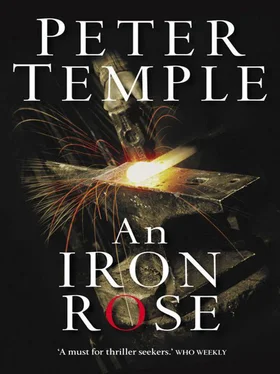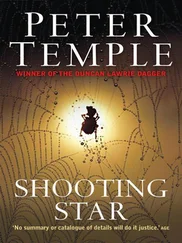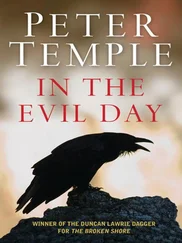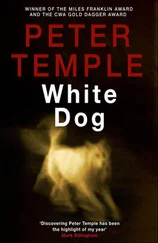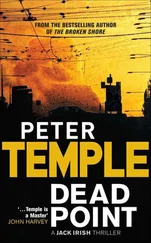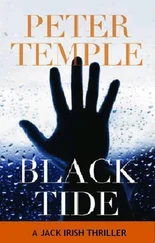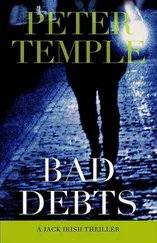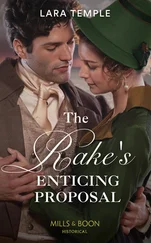Peter Temple - An Iron Rose
Здесь есть возможность читать онлайн «Peter Temple - An Iron Rose» весь текст электронной книги совершенно бесплатно (целиком полную версию без сокращений). В некоторых случаях можно слушать аудио, скачать через торрент в формате fb2 и присутствует краткое содержание. Жанр: Триллер, на английском языке. Описание произведения, (предисловие) а так же отзывы посетителей доступны на портале библиотеки ЛибКат.
- Название:An Iron Rose
- Автор:
- Жанр:
- Год:неизвестен
- ISBN:нет данных
- Рейтинг книги:3 / 5. Голосов: 1
-
Избранное:Добавить в избранное
- Отзывы:
-
Ваша оценка:
- 60
- 1
- 2
- 3
- 4
- 5
An Iron Rose: краткое содержание, описание и аннотация
Предлагаем к чтению аннотацию, описание, краткое содержание или предисловие (зависит от того, что написал сам автор книги «An Iron Rose»). Если вы не нашли необходимую информацию о книге — напишите в комментариях, мы постараемся отыскать её.
An Iron Rose — читать онлайн бесплатно полную книгу (весь текст) целиком
Ниже представлен текст книги, разбитый по страницам. Система сохранения места последней прочитанной страницы, позволяет с удобством читать онлайн бесплатно книгу «An Iron Rose», без необходимости каждый раз заново искать на чём Вы остановились. Поставьте закладку, и сможете в любой момент перейти на страницу, на которой закончили чтение.
Интервал:
Закладка:
D-I RAPSEY: Didn’t happen either.
DSS FARADAY: No.
D-I RAPSEY: Who was on duty?
DSS FARADAY: O’Meara. Stand-in.
D-I RAPSEY: Briefed on Lefroy’s habits? Knew what to expect? Shown the log?
DSS FARADAY: He was a stand-in. He was covering for two hours.
D-I RAPSEY: What time did you show up?
DSS FARADAY: Just after seven am.
D-I RAPSEY: Was that late?
DSS FARADAY: Depends. I had a flat. Happens.
D-I RAPSEY: What did you do when you finally arrived?
DSS FARADAY: Listened to the tape. Two minutes. We went straight in.
Howard Lefroy was in the wide hallway, near the sitting room door. He was wearing one of his big fluffy cotton bathrobes, the one with navy blue trim. The carpet was pale pink, the colour of a sexual blush. Except around Howie’s head and upper body, where it was dark with his blood. He’d been killed where he lay, his head pulled back by the ponytail and his throat cut. More than cut. He was almost decapitated. The bathrobe was bunched around his waist, displaying his short hairy legs and big buttocks.
Carlie Mance was in the bathroom, naked. She had tape on her mouth and her wrists were taped to the chrome legs of the washbasin. The man had been behind her when he cut her throat, kneeling between her legs, a fistful of her dark, shiny hair in his right hand, dragging her head back.
Her blood went halfway up the mirror over the basin, a great jet that hit the glass and ran down in neat parallel lines.
I should have stayed to ID Dennis. Or I could have put Mackie in a car right outside the garage to ID him. Or we could have had Traffic Operations pull him over nearby and had a good look at him. Carlie would have been alive. Lefroy too, not that I cared about that: cheated, that’s all I felt when I saw him.
But I didn’t do any of those things…And I didn’t put a tail on the car. Thirteen years on the job and I didn’t do any of those things.
The portable phone had a device that looked like a dictation machine attached to it. Howard Lefroy was on the tape, the two phone calls that had made Mackie suspicious. They were composites.
D-I RAPSEY: Tell us about this lockup of yours.
DSS FARADAY: As I’ve said about twelve times, it’s not my lockup. I hired it for my wife. I took some of her stuff there. Once. I gave her the key.
D-I RAPSEY: We’re assuming here that it would be out of character for your wife to keep 100 grams of smack and $20 000 in cash in her lockup. Fair assumption?
DSS FARADAY: I’d go with it.
D-I RAPSEY: So it would belong to someone else. Right?
DSS FARADAY: Jesus, charge me, why don’t you?
D-I RAPSEY: In good time. You’ve had dealings with Howard Lefroy, haven’t you?
DSS FARADAY: Dealings? I don’t know about dealings. I was on a job where we tried to get in touch with him. Seven, eight years ago.
D-I RAPSEY: You tried to roll a bloke. One of Lefroy’s runners.
DSS FARADAY: We rolled him.
D-I RAPSEY: But it didn’t work out.
DSS FARADAY: No. We put him in a safe house and somebody came around and took him away.
D-I RAPSEY: Dead, would you say?
DSS FARADAY: I would say.
D-I RAPSEY: You aware the talk was Lefroy was tipped off?
DSS FARADAY: That is what generally happens in Sydney. People get tipped off.
D-I RAPSEY: By you?
DSS FARADAY: I’ll say yes? I’m supposed to say yes, am I? Trick question, is it?
D-I RAPSEY: So first Lefroy gets lucky with you around and then he gets unlucky.
DSS FARADAY: I’m sorry, is that a question?
D-I RAPSEY: It’s the central question on my mind, Detective Faraday. It’s the central question on many people’s minds. And we’ll answer it before we’re finished. Interview terminated at three twenty-five pm.
That wasn’t the last interview, not by a long way. But as I had sat there, looking at the men who weren’t looking at me, I had known without doubt that I wasn’t one of them anymore. It was the end of that life. Thirteen years. Thirteen years of belief and self-respect. Pride, even. Come to an end in a grubby little formica-lined office reeking of disbelief.
I could have lived with that. What I couldn’t live with was that my negligence, my confident negligence, killed Carlie Mance.
I put the file away, made a phone call and set off for Melbourne to look for the scene of Dr Ian Barbie’s end.
It took me the best part of two hours to get to Varley Street, Footscray. And when I got there, I didn’t want to be there. It was a short narrow one-way street that ended in the high fence of some sort of container storage depot. Newspaper pages, plastic bags, even what looked like a yellow nylon slipper had worked their way into the mesh.
The right side of the street was lined with the high rusting corrugated-iron walls of two factories. The steel doors of the first building appeared to have been the target of an assault with a battering ram, but they were holding. At the end of the street, one of a pair of huge doors to the second building was missing, leaving an opening big enough for a truck.
The left side of Varley Street consisted of about a dozen detached weatherboard houses, small, sad structures listing on rotten stumps behind sagging or collapsed wire fences. Several of them had been boarded up and one was enclosed by a four-metre-high barbed-wire fence. About a tonne of old catalogues and other pieces of junk mail had been dumped on the porch of the house three from the corner.
My instinct was to reverse out of Varley Street and go home. There was nothing to be gained here. But I parked at the end of the street outside a house that showed a sign of being lived in: a healthy plant was growing in a black nursery pot beside the yellow front door. I got out, locked the door, put on the yellow plastic raincoat I kept in the car, and crossed the street.
The missing door had opened on to what had probably been a loading bay, a large concrete-floored space with a platform against the right-hand wall, which had two large sliding doors in it.
Opposite the entrance was another doorway with both doors open. Trucks had once driven through to the tarmac courtyard visible beyond.
I walked out into the courtyard. There was a blank corrugated wall to the left, a low brick building that looked like offices to the right and ahead a high cinder-block wall. The day of the weeds had come. Everywhere they were pushing contemptuously through the tarmac and their reflections lay in the cold puddles in every depression.
To my right, about twenty metres along, there was another doorway, big enough for a vehicle.
I walked over and stood on the threshold.
It was a big space, dimly lit from small windows high in the street wall. People had been using it recently: there were deep ashes in a corner, surrounded by empty cigarette packets, beer cans and the ripped cartons and wrung-out bladders of wine casks. In the air was the chemical smell that comes from burning painted wood.
I walked into the middle of the space and looked up. The beams were low.
A voice said, ‘Not there, mate. Over to ya right, that’s where.’
There was a man standing in the doorway, a dark shape against the light. He came towards me, his details emerging as he moved into the gloom: long, unkempt grey hair, grey stubble turning to beard, thin body in a black overcoat over a tracksuit, battered training shoes, one without laces.
‘Ya come to see where the bloke strung hisself up, have ya?’ he said, stopping about five metres away.
‘That’s right,’ I said.
‘Not a cop,’ he said. It was a statement of fact.
‘No.’
‘Got a smoke on ya?’
I shook my head.
‘Should be chargin admission. See that beam up there?’
He pointed at the roof to my left, to one of the trusses. The crossbeams were about four metres up. ‘Rope went over there. Jumped off the car roof.’
Читать дальшеИнтервал:
Закладка:
Похожие книги на «An Iron Rose»
Представляем Вашему вниманию похожие книги на «An Iron Rose» списком для выбора. Мы отобрали схожую по названию и смыслу литературу в надежде предоставить читателям больше вариантов отыскать новые, интересные, ещё непрочитанные произведения.
Обсуждение, отзывы о книге «An Iron Rose» и просто собственные мнения читателей. Оставьте ваши комментарии, напишите, что Вы думаете о произведении, его смысле или главных героях. Укажите что конкретно понравилось, а что нет, и почему Вы так считаете.
